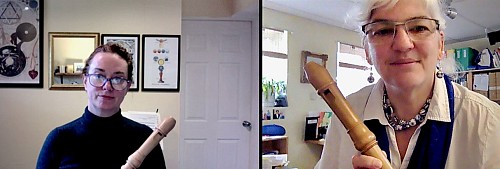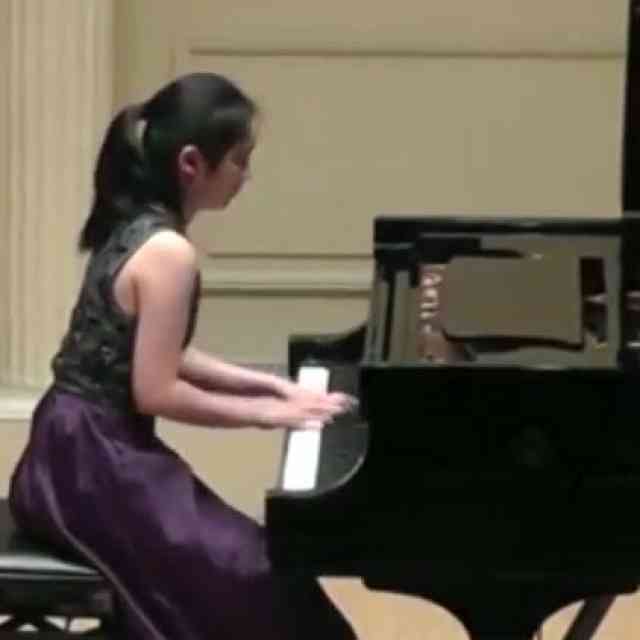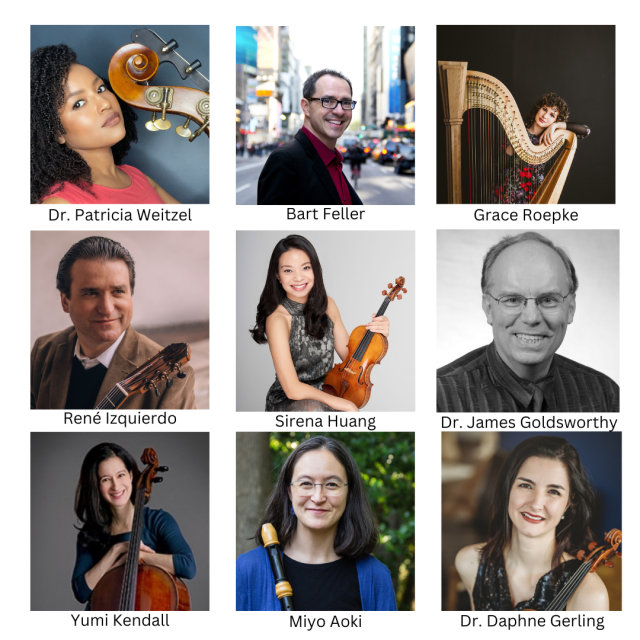by Andrea Macdonald (AB)
True musical joy could never have been possible for me without the Suzuki method.
I have always been musical. Growing up, I sang in choirs, in musical theatre, and in pop bands. I joined a Balinese gamelan where we learned entire concerts by heart. I memorized very quickly and retained very well. My ear was my superpower. I was the first person “off book” in choir and my friends delighted in my ability to name any popular song in the first note or two. But, I could not read music.
It wasn’t that I hadn’t tried. I’d taken piano and sight-singing lessons but these ended in frustration. When my husband, a professional musician, suggested I try a “one line” instrument I took up the recorder and fell in love with it. With only one stave to deal with, things improved somewhat. I joined a quartet and a large ensemble. My good ear served me well but I quickly hit a sight-reading wall. Despite help from my husband and years of faithful practice, I was frustrated and ashamed. It was emotionally difficult to practice and I felt stuck, always learning the notes and never getting a chance to work on the actual music.
Finally, at 52, I got some psycho-educational testing done and was diagnosed with ADHD and something called a “severe visual processing disorder”. I needed a different approach.
I didn’t think anyone would be willing to teach the Suzuki method to an adult but I found a wonderful teacher, Kathleen Schoen, in Alberta. We started lessons and I burned through Volume One on alto recorder in about two weeks, easily learning two to three songs per day. We added the soprano (recorder) book and I began working in both voices, on Volume Two.

Here I received my first shock: one of the pieces (Bourrée from the Water Music Suite by G.F. Handel) was something I had just played with my large consort. How on earth could this be only Volume Two? But unlike before, I was not frustrated. I did not feel defeated.
I teach seniors how to use technology such as iPads and iPhones. I spend quite a bit of time building good foundations before moving on to higher concepts. I was extremely impressed with the layout and careful scaffolding of the Suzuki method, which had a logical and gentle progression.
The Suzuki method changed everything for me. Instead of dragging myself to the practice room to endure frustration and tears while trying to stay focused, I was now practicing for over an hour a day. My self-esteem soared! I was no longer dreaming of a future where I might one day be able to work on music that I loved. I was already doing it!
I highly recommend the Suzuki method to any adult interested in learning music. I just wish there was a place for adult Suzuki students to chat. Like the kids, we need peers to accompany us on the journey.








